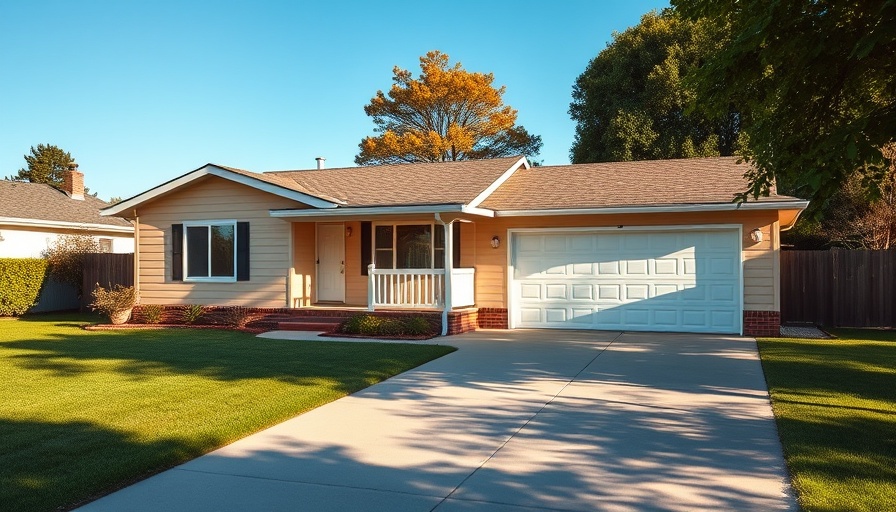
Understanding Prefabricated Homes: A Modern Solution
If you’re contemplating options in the housing market beyond traditional stick-built homes, you may have stumbled upon the term "prefabricated" or "prefab" homes. This innovative housing option has gained traction, particularly among those looking for more affordable and sustainable living solutions. But what exactly is a prefab home, and is it the right fit for you?
What Defines a Prefab Home?
A prefab home is a structure that is partially or fully assembled in a factory before being transported to the site where it will be lived in. The final assembly can occur on-site or off-site, depending on the style of the home. This manufacturing process often leads to notable savings in both time and cost, making prefab houses an enticing alternative for first-time homebuyers or those looking to downsize.
Exploring Types of Prefab Homes: Modular vs. Manufactured
When discussing prefab homes, it’s essential to understand the different types. Generally, prefab housing falls into two main categories: modular homes and manufactured houses.
Modular Homes: These are typically built in sections at a production facility and then transported to the homeowner’s property. Once on-site, they are assembled on a permanent foundation. Modular homes resemble traditional single-family homes and can appreciate in value over time, making them appealing as long-term investments.
Manufactured Houses: Often referred to as mobile homes before 1976, these homes are built on a permanent chassis and can be moved. Unlike modular homes, manufactured houses do not require a permanent foundation, leading to differences in financing options and longevity.
The Financial Appeal of Prefab Homes
One of the primary benefits of prefab homes lies in their affordability, a key selling point given the current real estate market conditions. With the rising cost of traditional housing, many are turning to alternatives that won’t break the bank.
In addition to being cheaper up front, prefab homes can be energy efficient, resulting in lower utility bills. This is particularly attractive for environmentally conscious buyers looking to reduce their carbon footprint. As the demand for sustainable living solutions increases, so does the interest in homes designed to minimize environmental impact.
Future Trends in Prefab Housing
As innovation continues to progress within the real estate industry, prefab homes are likely to undergo significant transformation. The introduction of new materials and building technologies promises to enhance durability and energy efficiency. Homebuilders are also focusing on customization options, allowing buyers to personalize their prefabs to better suit their needs.
Moreover, the move toward remote working has made many reconsider their housing situations. As urban dwellers seek more space and privacy away from crowded cities, prefabs present an ideal solution, combining affordability and sustainability.
Challenges and Considerations When Buying a Prefab Home
While the prospects of owning a prefab home can be enticing, it’s essential to consider potential challenges. Financing options may differ significantly between modular and manufactured homes. Additionally, not all financing institutions view prefab homes as equivalent to traditional houses, which can complicate loan applications.
Moreover, buyers should also investigate zoning and land regulations in their desired area, as certain jurisdictions have specific requirements for prefabricated homes. Ensuring all local regulations are met can be a crucial aspect of the purchasing process.
Moving Forward: Is a Prefab Home for You?
As you navigate the housing market, take time to weigh the pros and cons of choosing a prefab home. For many, the affordability and potential sustainability offered by these homes can make them an attractive option. However, understanding the nuances between different types of prefab housing, regulation issues, and financing options is crucial to making an informed decision.
Ultimately, prefabricated homes can provide a modern, cost-effective, and environmentally friendly housing solution in a rapidly evolving real estate landscape. Whether you're considering downsizing, embarking on a new journey, or investing in property, this investment might just reshape your future.
 Add Row
Add Row  Add
Add 



Write A Comment